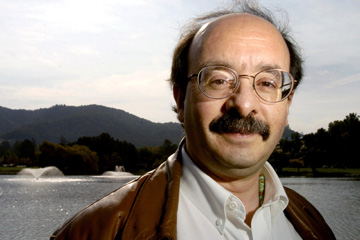
It was early 2005, and Wal-Mart had set out on its sustainability journey not long before. We made a commitment to run an efficient, profitable business that was also environmentally responsible. To create meaningful change, we knew we had to incorporate sustainability into every aspect of our business.
Our CEO Lee Scott was leading the effort, and he brought in a group of influential thinkers to provide counsel. Amory B. Lovins was one of those who met with us in a small conference room at the Embassy Suites in Bentonville, Arkansas. If you can picture Albert Einstein in Birkenstocks before the gray hair had set in, you have an image of Lovins. Co-founder of Rocky Mountain Institute, a Colorado-based nonprofit energy consultancy, he is an uncommon blend of scientist, environmentalist and entrepreneur. The small room felt crowded with different viewpoints, but we all saw the same horizon.
At Wal-Mart, we know inefficiencies cause waste, waste costs money, and eliminating that waste allows us to lower costs further for our customers. Sustainability was good for business and good for the environment. Lovins, the visionary pragmatist who introduced us to "natural capitalism" and "elegant frugality" — phrases that are changing the way businesses think and operate — saw ways to align our purposes as we redefined our role as a business.
We are lucky to count him as a resource. The idealism that fuels Lovins' professional life is tempered with a very realistic understanding of how business works. He identifies opportunities everywhere, and is steadfast in his belief that harvesting the low-hanging fruit will yield great returns.
The world is catching up with Lovins, which isn't easy since time is another resource he doesn't let go to waste. When he answers his phone the first things you have to ask him are: What time zone are you in, and what continent are you on? No matter his answer, we know the world is getting better because Lovins is imagining it that way, and making it happen.
Rob Walton is chairman of Wal-Mart Stores Inc. and of Conservation International's Center for Environmental Leadership in Business